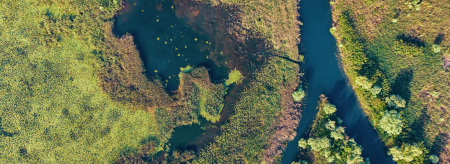OpenNESS
Outline
Between 2012 and 2017, OpenNESS translated the concepts of Ecosystem Services (ESS) and Natural Capital (NC) into operational frameworks that provide practical and tailored solutions for informing sustainable land, water, and urban management in different locations and scales. Working closely with decision makers and stakeholders, the project scrutinized the potential and the limitations of ESS and NC in relation to wider EU economic, social and environmental policy initiatives.
The Challenge
Despite improved understanding of the links between ecosystem health, provision of ecosystem services and human well-being, further conceptual and empirical work is needed to make the ideas of ecosystem services (ESS) and natural capital (NC) operational. In light of this, OpenNESS developed innovative and practical ways of applying them in land, water and urban management. It identified how, where, and when the concepts can be most effectively applied to solve problems by working with public and private decision makers and stakeholders to understand the range of policy and management problems faced in different contexts (ranging across locales, sectors, scales and time).
Outcome
The key message emerging from the case studies is that ecosystem services knowledge is most effective and operational when decision-makers, practitioners and key stakeholders have been closely involved in the assessment process to ensure that they find the information relevant and reliable, and are ready to act upon it.
The research approach was transdisciplinary, meaning that the researchers worked in close collaboration with practitioners and place-placed experts to test and implement solutions that are relevant and feasible on the ground. The case studies also served as ‘test-beds’ for biophysical, socio-cultural and monetary methods to assess and value ecosystem services. The experience from testing 43 methods in the OpenNESS case studies resulted in an integrative ecosystem service assessment framework, a set of decision trees to help structure and guide the process of selecting individual methods and several method fact sheets, all of which are available via Oppla.
OpenNESS has also promoted a conceptual understanding about ecosystem services and natural capital by creating a Glossary with over 200 agreed terms and an Ecosystem Service Reference Book with a total of 27 Synthesis Papers published on the project website (www.openness-project.eu), also available via Oppla.
Funding
OpenNESS was funded by the European Union Seventh Framework Programme (FP7-ENV.2012.6.2-1) under grant agreement EC-308428.
